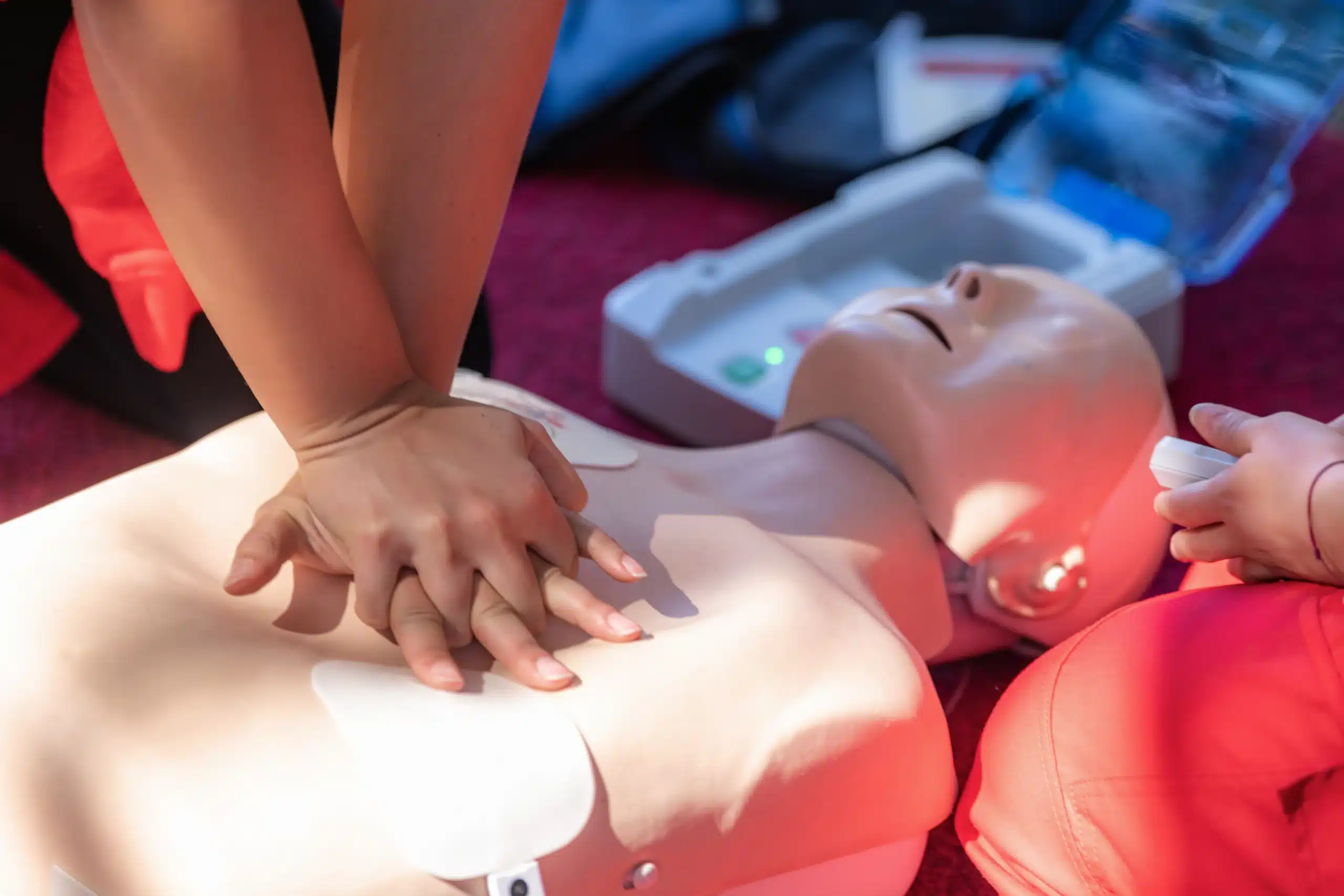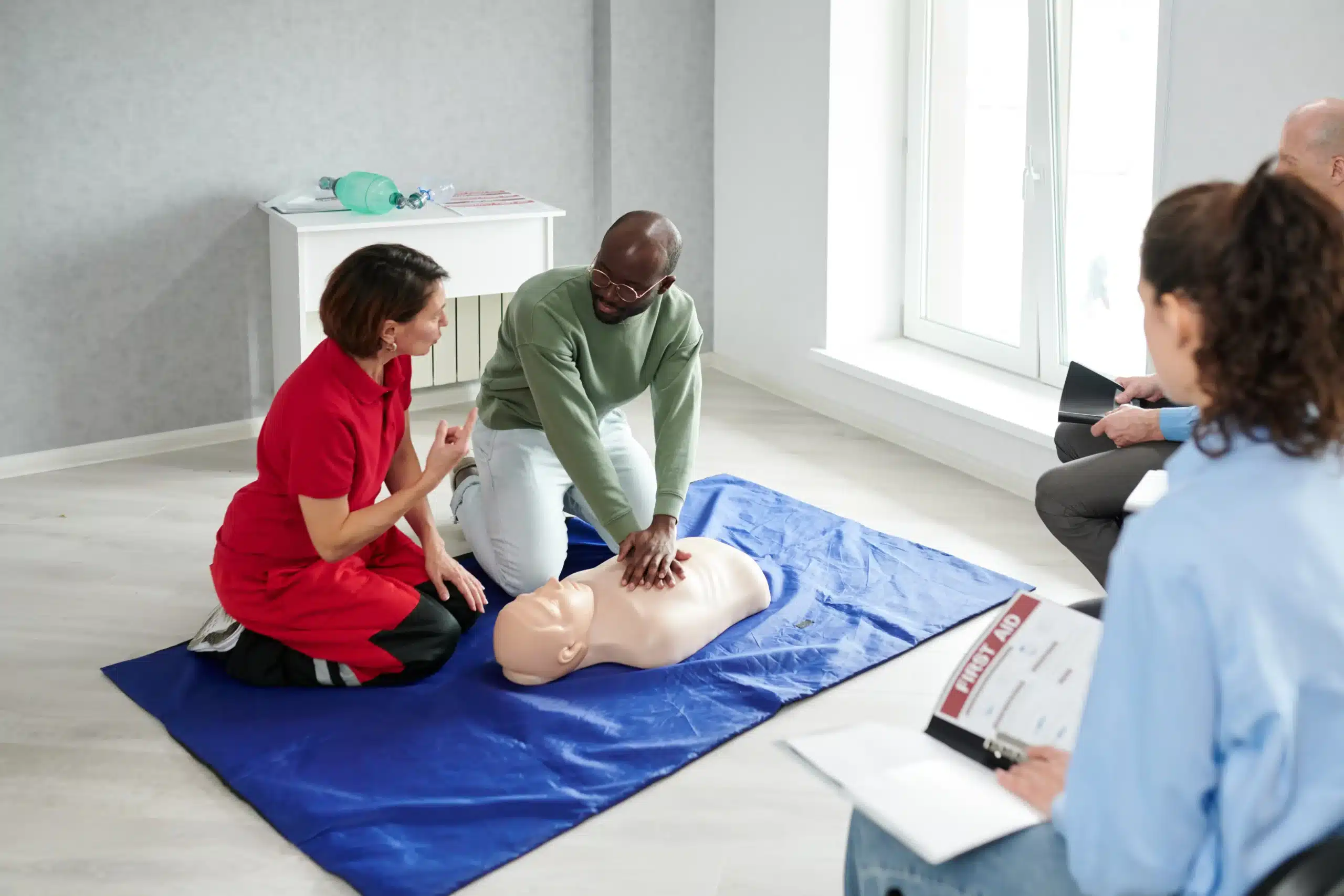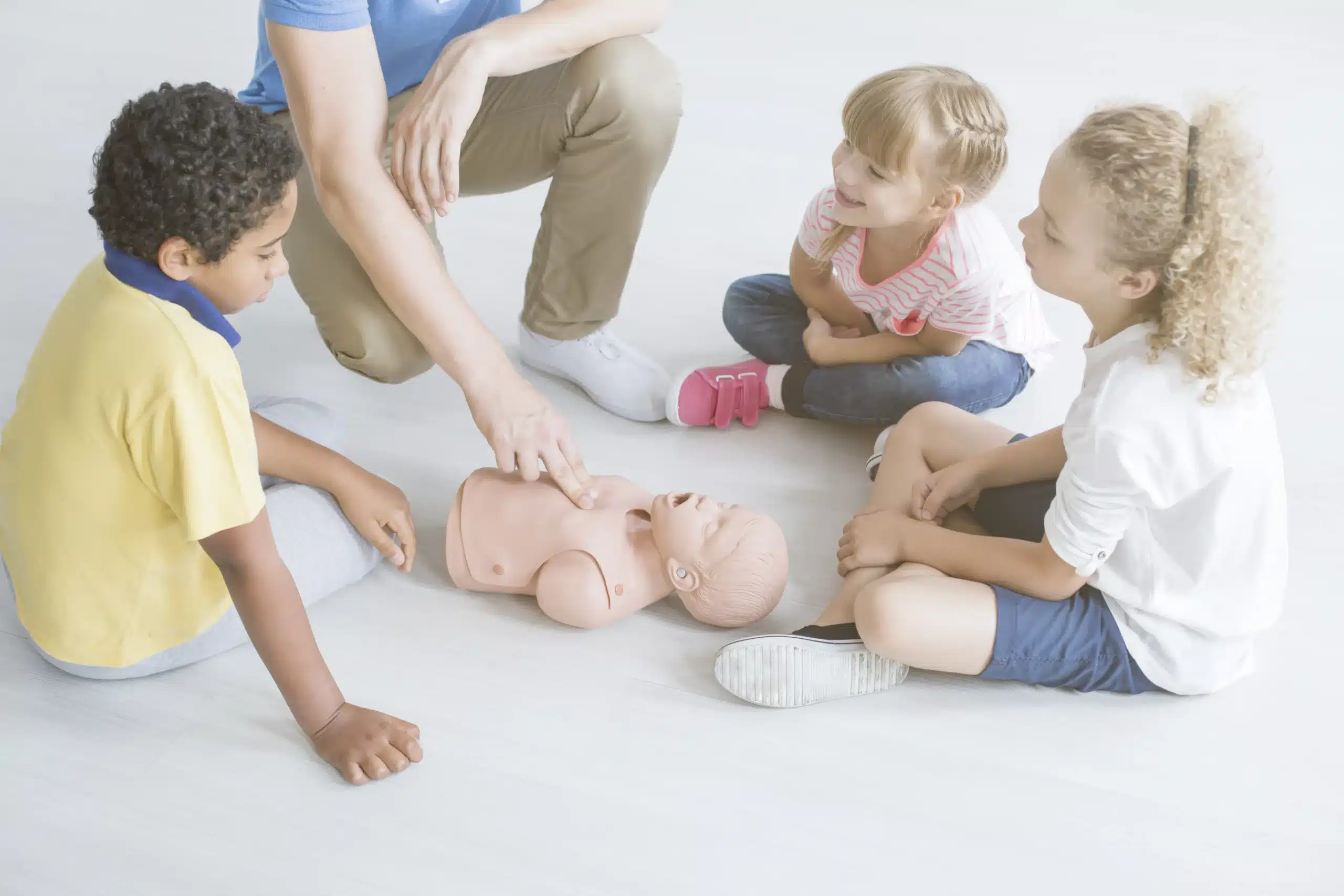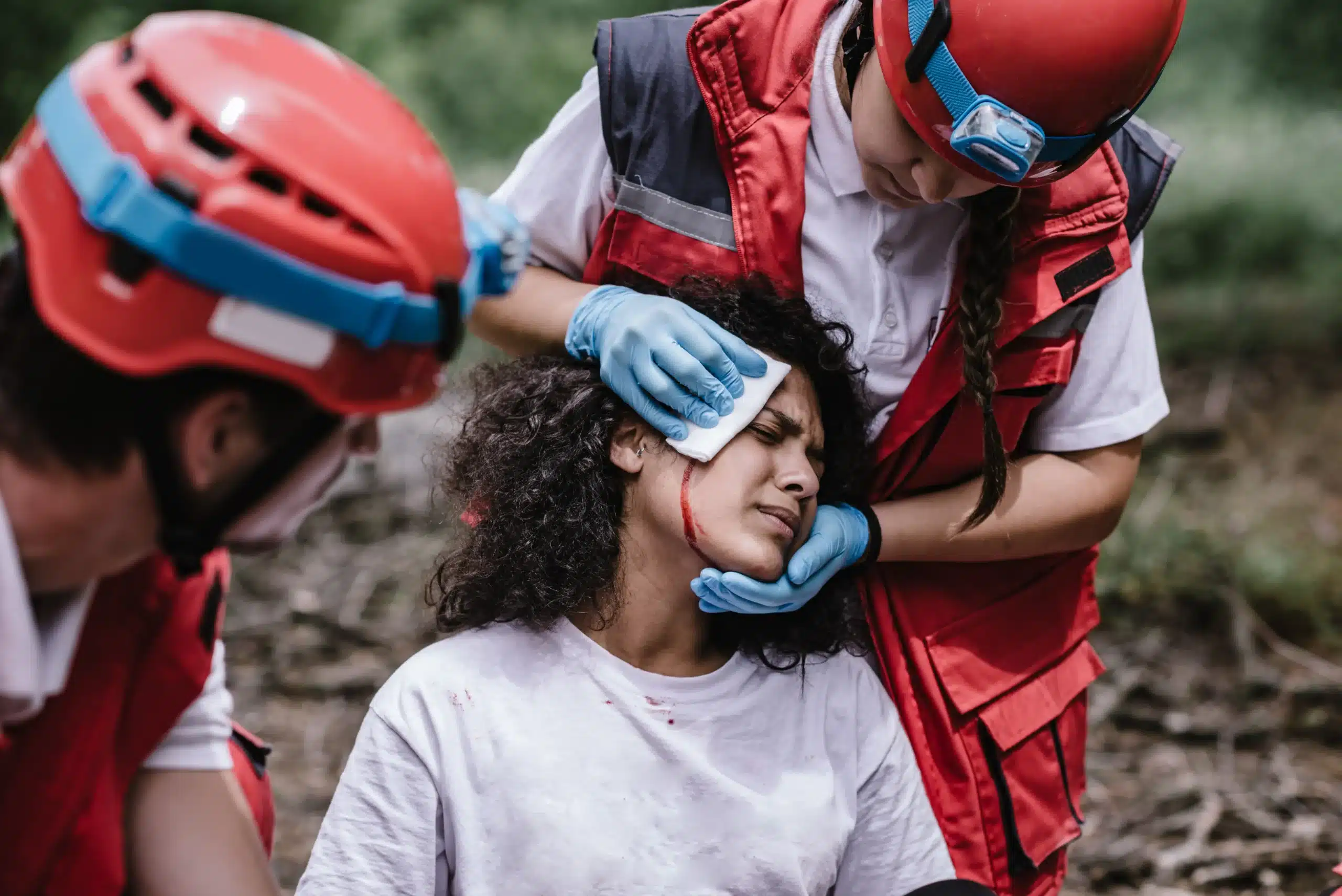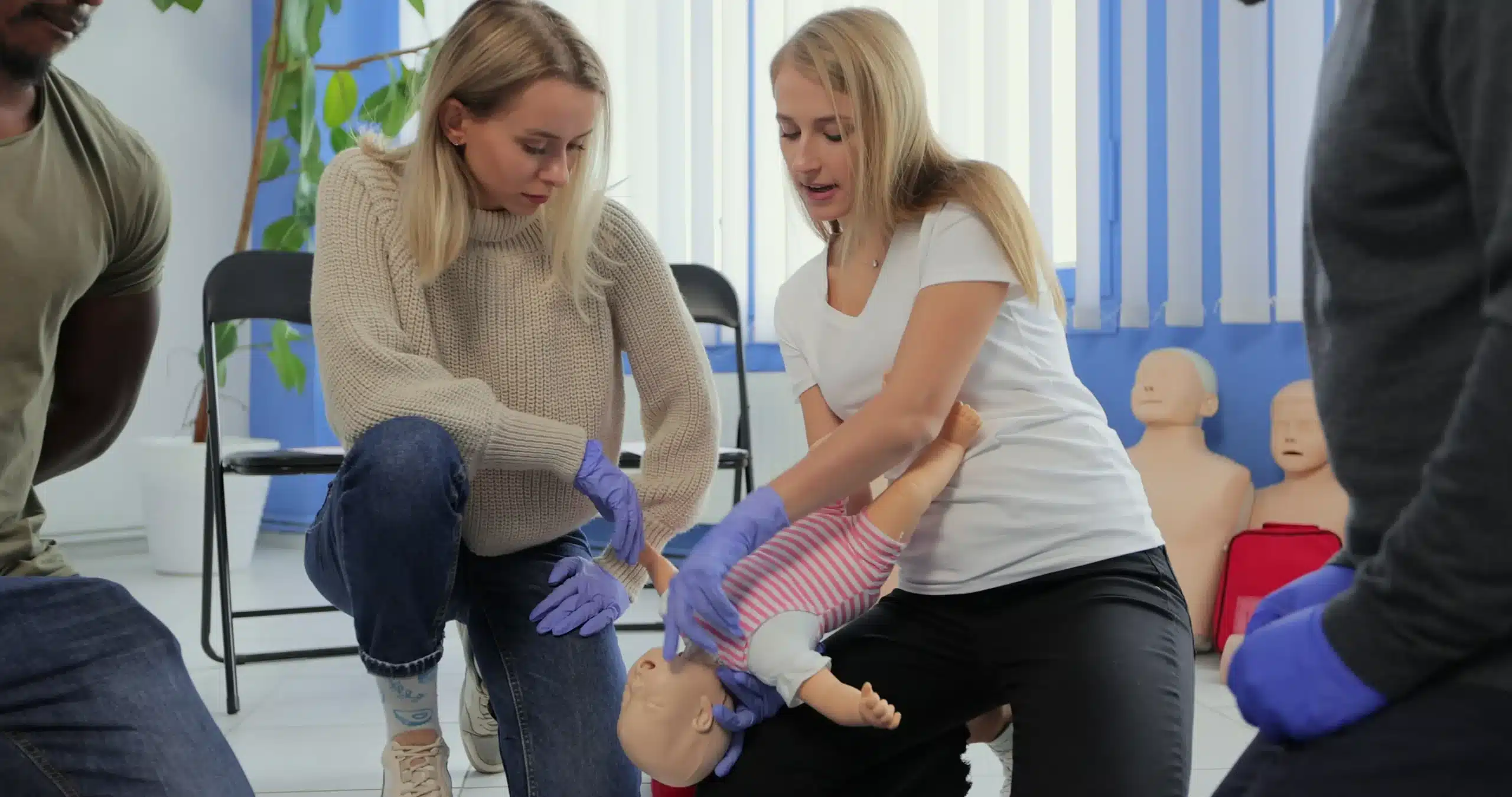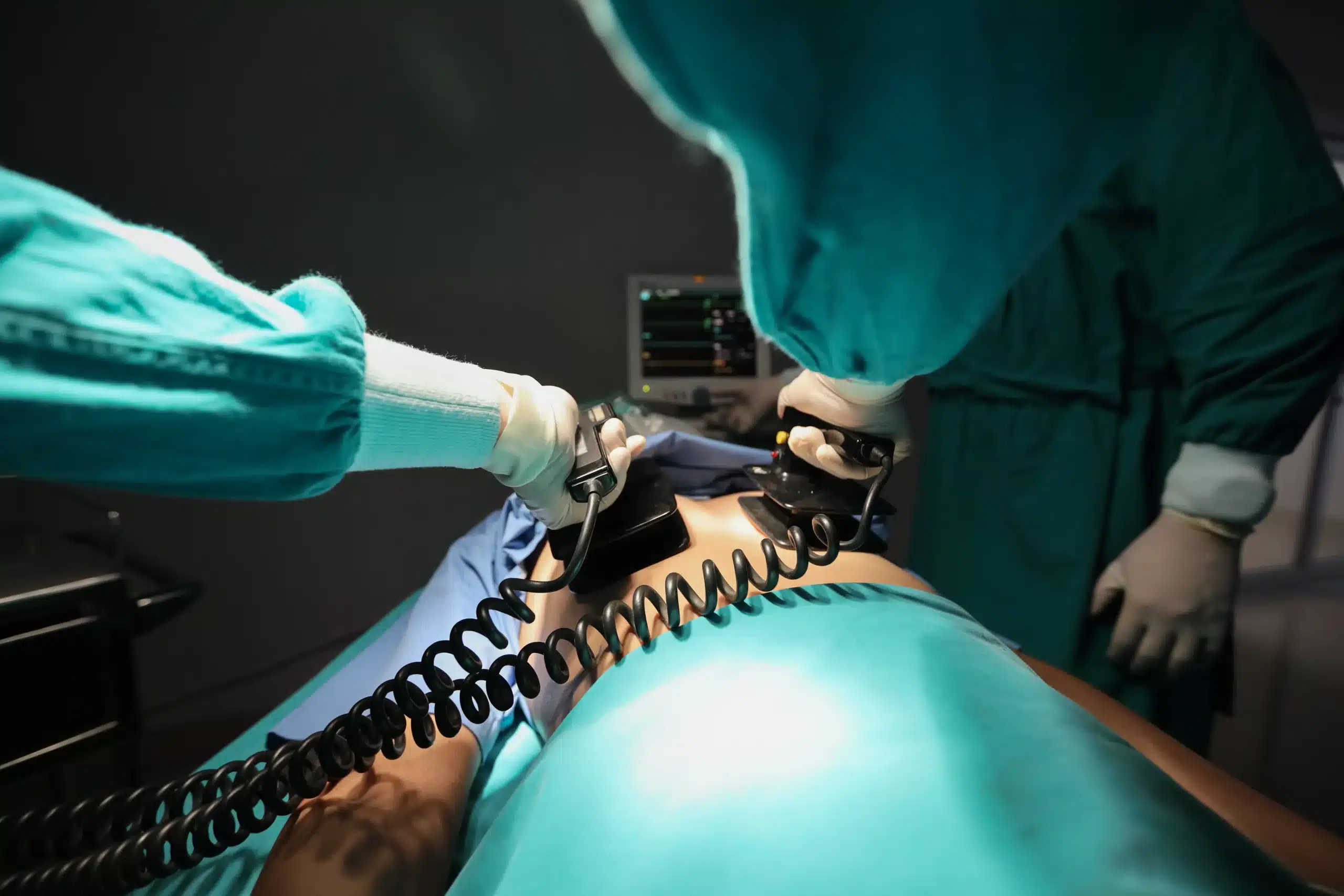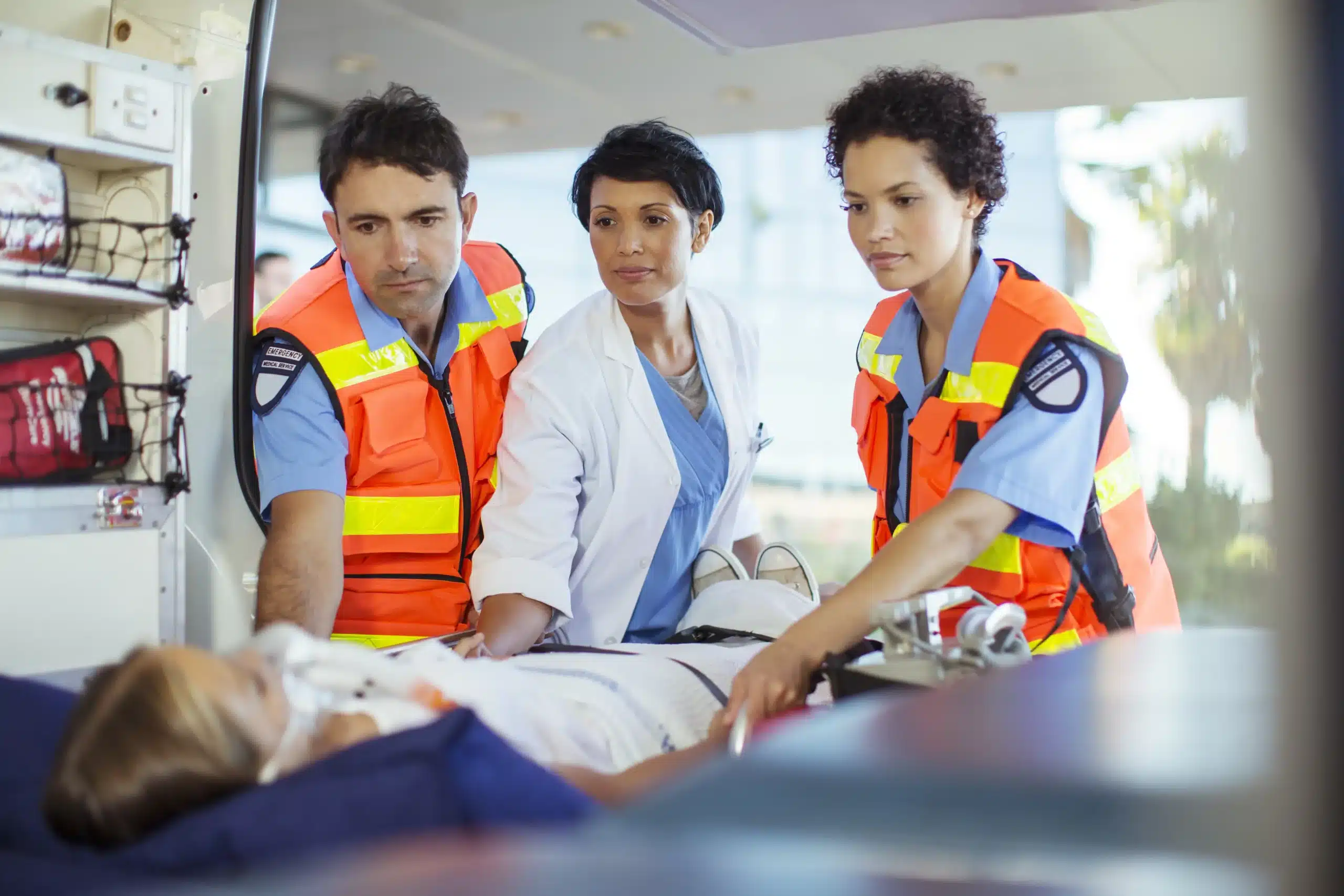The first few moments of a newborn’s life can be the most critical. As a healthcare professional in Livermore, you play a vital role in ensuring those moments are safe and healthy. The Neonatal Resuscitation Program (NRP) empowers you with the skills and confidence to handle any emergency situation that may arise during childbirth. This comprehensive training covers everything from basic airway management to advanced resuscitation techniques, giving you the tools you need to provide immediate, life-saving care. This article will guide you through the essentials of NRP in Livermore, including what the program entails, where to find local training, and how it ultimately contributes to better patient outcomes in our community.
Key Takeaways
- NRP equips healthcare professionals with life-saving skills: This training provides the knowledge and hands-on practice necessary to manage newborn emergencies, directly impacting patient outcomes in Livermore.
- Local NRP courses offer flexible learning options: Explore various providers in Livermore, such as Safety Training Seminars and Stanford Health Care – ValleyCare, to find a course that fits your schedule and learning style.
- Maintain your NRP skills through continuing education: Stay up-to-date with the latest advancements in neonatal care and best practices by leveraging online resources and local training opportunities.
What is NRP? A Vital Skill for Livermore Healthcare Professionals
What is the Neonatal Resuscitation Program?
The Neonatal Resuscitation Program (NRP) equips healthcare professionals with the skills to manage newborn emergencies during childbirth. This training gives neonatal care teams the knowledge and techniques they need for effective newborn resuscitation. The NRP program promotes an evidence-based approach to newborn care immediately after birth, fostering effective team-based care for healthcare providers present during delivery.
Why is NRP Essential in Livermore?
NRP provides rigorous training for healthcare professionals who might need to save a baby’s life. Thorough NRP training teaches healthcare providers the skills to handle neonatal medical events. Holding an NRP certification is the U.S. standard for neonatal care, demonstrating a nurse’s skill in newborn emergency care, which is crucial for effective intervention. This program emphasizes both theoretical knowledge and practical skills, essential for Livermore healthcare professionals to respond effectively to these emergencies. This specialized training helps ensure a higher standard of care for newborns in our community.
NRP Course Structure and Content
NRP certification blends online learning with hands-on skill development. This approach allows you to learn the fundamentals at your own pace and then practice applying them in a controlled environment. Let’s break down the typical course components:
Learn Online
The NRP Essentials course typically begins with online modules covering lessons 1–4 of the Textbook of Neonatal Resuscitation. This foundational coursework is suitable for anyone involved in newborn care, from nurses and doctors to respiratory therapists and midwives. You’ll explore essential concepts like the initial steps of resuscitation, positive-pressure ventilation, and chest compressions. Many programs offer flexible online learning, allowing you to study when and where it’s most convenient. For a helpful overview, check out these NRP certification FAQs.
Test Your Hands-On Skills
After completing the online portion, you’ll move on to the hands-on skills assessment. This crucial step tests your ability to perform the techniques you learned online. Instructors will guide you through simulated scenarios, providing feedback and ensuring you’re comfortable with the practical application of neonatal resuscitation. This portion often involves practicing basic and advanced steps of resuscitation, including airway management and chest compressions. Lifework’s NRP Skills Classes are a great example of the type of hands-on training available.
Key Skills and Techniques You’ll Learn
The goal of NRP is to equip healthcare professionals with the skills and knowledge to confidently perform neonatal resuscitation. The program emphasizes an evidence-based approach to newborn care, promoting effective team-based responses during delivery. You’ll learn how to assess a newborn’s condition immediately after birth, provide appropriate respiratory support, perform chest compressions if necessary, and administer medications when needed. The American Academy of Pediatrics offers a comprehensive overview of the Neonatal Resuscitation Program and its importance in providing effective newborn care. Through a combination of online learning and hands-on practice, you’ll develop the skills and confidence to handle critical situations and contribute to positive patient outcomes.
Find NRP Classes in Livermore
Finding the right NRP course in Livermore is easier than you think. Here are a few options to explore:
Safety Training Seminars
Safety Training Seminars in Livermore offers a range of American Heart Association (AHA) certified courses, including NRP. This makes it a convenient option for busy professionals seeking comprehensive training. They also offer CPR, BLS, ACLS, PALS, and First Aid certification.
Stanford Health Care – ValleyCare
For more advanced training, consider Stanford Health Care – ValleyCare, which provides opportunities through its Center for Advanced Pediatric & Perinatal Education (CAPE). The center focuses on simulation-based healthcare training, including specialized programs for neonatal resuscitation teams.
Other Local Providers
You can also find other local providers offering NRP certification. Lifework Education, for instance, emphasizes an evidence-based approach to newborn care. The American Academy of Pediatrics website offers helpful resources and information on NRP programs. A quick search can uncover additional training centers in and around Livermore, including Dublin and Mountain House.
Get NRP Certified
Becoming NRP certified is a straightforward process designed to equip you with the skills and knowledge to provide effective neonatal resuscitation. Here’s how it works:
Register and Prepare
First, register for an approved NRP course. Hospitals, medical training centers, and professional associations offer these courses. Before your course begins, familiarize yourself with the NRP Textbook of Neonatal Resuscitation. The NRP Essentials course covers the first four lessons and provides a solid foundation for anyone involved in newborn care. This preparation will help you get the most out of your instructor-led training.
Complete the Course
NRP courses blend online learning with hands-on practice. The online portion covers essential concepts and procedures, allowing you to learn at your own pace. You’ll then participate in an instructor-led event to practice the skills you learned online. This blended learning approach ensures you develop a comprehensive understanding of neonatal resuscitation. The course emphasizes an evidence-based approach to newborn care and promotes effective teamwork among healthcare professionals. Through in-depth instruction and simulations, you’ll gain the confidence to handle neonatal medical events effectively.
Renew Your Certification
NRP certification is valid for two years. To maintain your credentials and stay up-to-date with advancements in neonatal resuscitation, renew your certification by completing the online assessment and attending another instructor-led event. The American Academy of Pediatrics website offers more information about the renewal process. Staying current with your NRP certification demonstrates your commitment to providing high-quality care to newborns.
Cost and Time Investment for NRP Courses
Understanding the costs and time commitment associated with NRP certification is essential for planning your training. While it requires an investment, the value it brings to your healthcare career is significant.
Course Pricing
The cost of NRP certification varies based on location and provider. At Safety Training Seminars, our comprehensive NRP certification—including the online course, skills testing, and certification card—is $280. Other providers may structure their pricing differently, sometimes separating the online portion and in-person skills session. Be sure to check with your chosen provider for their specific pricing. You can find our pricing details on our NRP Certification page. We also encourage you to review our low price guarantee.
Time Commitment
Becoming NRP certified requires a time commitment for both online learning and in-person skills practice. Our program at Safety Training Seminars involves approximately three hours of online coursework and three hours of hands-on skills testing. Other programs may have slightly different timeframes for the online and in-person components. This blended learning approach allows you to learn at your own pace online and then apply your knowledge during the practical skills session.
Value for Your Career
The investment in NRP certification extends beyond the initial cost and time. This credential holds significant value for healthcare professionals involved in newborn care. It demonstrates your competency in handling neonatal emergencies, a critical skill in any clinical setting. NRP training equips you with the knowledge and skills to provide effective resuscitation, ultimately improving patient outcomes. This specialized training can enhance your career prospects and contribute to your professional growth.
Overcome NRP Training Challenges
The Neonatal Resuscitation Program (NRP) equips healthcare providers with life-saving skills, but the training can be challenging. It’s completely normal to experience some hurdles. This section offers practical advice to help you overcome common difficulties and succeed in your NRP training.
Common Difficulties and Solutions
Like any medical training program, NRP courses can be demanding. New learners sometimes struggle with the complexities of neonatal physiology or the fast-paced nature of resuscitation scenarios. These challenges are common. Break down the material into smaller, manageable chunks, focusing on mastering one concept or skill at a time. The NRP Questions and Answers guide can clarify complex topics. Another common challenge is putting knowledge and skills into real-world practice. Regularly reviewing the material and participating in simulation exercises can bridge this gap and build confidence. Proactive strategies and a focused approach are key to overcoming these hurdles.
Manage Stress Effectively
Medical training, especially in critical areas like neonatal resuscitation, can be stressful. Effective stress management is essential for successful learning and performance. Some stress is normal, but find healthy ways to manage it. Simple techniques like deep breathing exercises, mindfulness, and regular physical activity can make a big difference. Prioritize sleep and a balanced diet to support your well-being throughout your training. This research on stress in Nurse Residency Programs highlights the importance of addressing stress and coping mechanisms, insights relevant for anyone undertaking NRP training.
Adapt to Your Learning Style
Everyone learns differently. Understanding your learning style—whether you’re a visual, auditory, or kinesthetic learner—can significantly impact how effectively you absorb information. Visual learners can use diagrams, charts, and videos to reinforce concepts. Auditory learners might benefit from recording lectures or discussing the material with peers. Kinesthetic learners often find hands-on practice and simulations particularly helpful. Experiment with different learning strategies to discover what works best for you. Adapting to your learning style is a key step in maximizing your learning potential during NRP training.
Apply NRP in Healthcare Settings
Teamwork and Communication
The moments after a baby is born can be critical, and a coordinated team response is crucial for a positive outcome. Effective neonatal resuscitation relies heavily on clear communication and seamless teamwork among healthcare providers. The NRP program emphasizes this by incorporating team-based training scenarios. These scenarios allow you to practice communicating effectively in a high-stress environment, ensuring everyone is on the same page and working together. This focus on teamwork helps build trust and confidence among team members, leading to better patient outcomes. The American Academy of Pediatrics emphasizes this team-based approach as a core component of NRP.
Implement Evidence-Based Practices
NRP training isn’t just about learning techniques; it’s about understanding the evidence behind them. The program is built on the latest research and best practices in neonatal resuscitation. This ensures healthcare professionals are equipped with the most up-to-date knowledge. This evidence-based approach allows you to make informed decisions during critical situations, leading to more effective interventions and improved patient care. By implementing these practices, you contribute to a higher standard of care for newborns in Livermore.
Benefit from Simulation Training
One of the most valuable aspects of NRP training is the use of simulation. Simulation training provides a safe and controlled environment to practice your skills and build confidence before facing real-life situations. It allows you to work through various scenarios, make decisions under pressure, and receive immediate feedback. This hands-on experience bridges the gap between theory and practice, making you better prepared to handle the challenges of neonatal resuscitation. This practical experience is invaluable for honing your skills and ensuring you’re ready to provide the best possible care.
Refresh Your NRP Skills
As a healthcare provider, staying up-to-date on the latest advancements in neonatal care is crucial. The Neonatal Resuscitation Program (NRP) provides a standardized approach to caring for newborns needing immediate support, ensuring you’re equipped to handle any situation. Regularly refreshing your NRP skills is essential for maintaining proficiency and delivering the best possible care.
Stay Updated
The NRP curriculum and algorithm are designed to help healthcare professionals like you facilitate a newborn’s transition to life outside the womb. This standardized approach ensures consistent, high-quality care for infants requiring resuscitation. Staying current with the latest NRP guidelines and recommendations is paramount, as these practices evolve with ongoing research and best practices. You can find current recommendations and insights into the future of neonatal resuscitation in publications like this study on the Neonatal Resuscitation Program.
Find Local Advanced Learning Resources
Look for opportunities to expand your knowledge and skills through advanced learning resources. Pediatrix, for example, offers comprehensive educational and professional development opportunities for healthcare providers, covering a wide range of topics relevant to neonatal care. Connecting with local organizations and institutions can provide valuable resources and networking opportunities. Consider attending workshops, conferences, or specialized training sessions to deepen your understanding and refine your techniques. Safety Training Seminars in Livermore also offers a range of courses to help you stay current.
Explore Online Neonatal Care Education
Online resources offer convenient and flexible ways to refresh your NRP skills. The American Academy of Pediatrics provides the NRP Provider Course, introducing the core concepts and basic skills of neonatal resuscitation. This course is ideal for healthcare professionals involved in any aspect of neonatal care, offering a comprehensive overview of essential techniques. NRP certification demonstrates your commitment to providing high-quality care and equips you with the knowledge and skills to handle neonatal emergencies effectively. You can find more information about NRP certification and its benefits through resources like this guide on NRP Certification.
NRP’s Impact on Livermore Neonatal Care
The Neonatal Resuscitation Program (NRP) plays a crucial role in improving neonatal care within our Livermore community. It offers healthcare providers the tools and training necessary to confidently and effectively manage neonatal emergencies, ultimately leading to better patient outcomes.
Improve Patient Outcomes
NRP training equips healthcare professionals with the knowledge and skills to respond effectively in neonatal resuscitation situations. This preparation is essential for providing immediate, life-saving interventions to newborns in distress. When healthcare providers are well-versed in NRP protocols, they can quickly assess and stabilize newborns, increasing the chances of positive outcomes and reducing the risk of long-term complications. This specialized training directly translates to improved survival rates and better health for newborns in Livermore. Cascade Training discusses how NRP empowers providers in these critical situations.
Build Confidence as a Healthcare Provider
Mastering neonatal resuscitation through NRP certification instills confidence in healthcare providers. The program covers a range of topics, from basic to advanced resuscitation techniques, fostering effective team collaboration and adherence to evidence-based practices. This comprehensive approach, combined with simulation-based learning, ensures healthcare professionals feel prepared and empowered to handle any neonatal emergency they may encounter. Practicing skills in a safe environment builds confidence and reinforces best practices.
Address Local Neonatal Emergency Challenges
NRP directly addresses the unique challenges of neonatal emergencies in Livermore. Surefire CPR explains the importance of a robust neonate resuscitation program and the vulnerability of newborns. By providing healthcare professionals with the necessary tools and resources, NRP strengthens the local healthcare system’s ability to respond effectively to these emergencies. This preparedness is vital for ensuring the best possible care for newborns in our community.
Related Articles
- NRP Certification Classes in Livermore, CA – Livermore CPR Class
- CPR Certification in Livermore: Your Complete Guide – Livermore CPR Classes
- Why CPR is Important in Healthcare – Livermore CPR Classes
- Find CPR Classes in Dublin: Your Complete Guide – Livermore CPR Classes
- AHA PALS Classes in Livermore, CA – Livermore CPR Classes
Frequently Asked Questions
What exactly does NRP certification involve? NRP certification typically involves a blended learning approach. You’ll complete online modules covering the fundamentals of neonatal resuscitation, followed by an in-person skills session where you’ll practice those skills in simulated scenarios. This combination of online learning and hands-on practice ensures you have both the knowledge and the practical skills to handle real-life situations.
Where can I find NRP training in Livermore? Several options are available for NRP training in Livermore. Safety Training Seminars offers comprehensive NRP courses. You can also explore options at Stanford Health Care – ValleyCare or other local providers. Checking with hospitals, medical training centers, and professional organizations is always a good idea, too.
How much does NRP certification cost, and how long does it take? Costs vary depending on the provider and the specific course format. Generally, you should expect to invest around $200-$300. The time commitment also varies, but most programs involve several hours of online coursework and a few hours of in-person skills practice.
Why is NRP certification important for my healthcare career? NRP certification demonstrates your competency in neonatal resuscitation, a critical skill for any healthcare professional involved in newborn care. It shows potential employers your commitment to providing high-quality care and can enhance your career prospects. Plus, knowing you have these skills can boost your confidence in your ability to handle emergencies.
How can I overcome the challenges of NRP training? NRP training can be demanding. Breaking down the material into smaller sections, focusing on one concept at a time, and practicing regularly can help. Managing stress through techniques like deep breathing and mindfulness is also important. Remember to find study methods that align with your learning style, whether you’re a visual, auditory, or kinesthetic learner.
